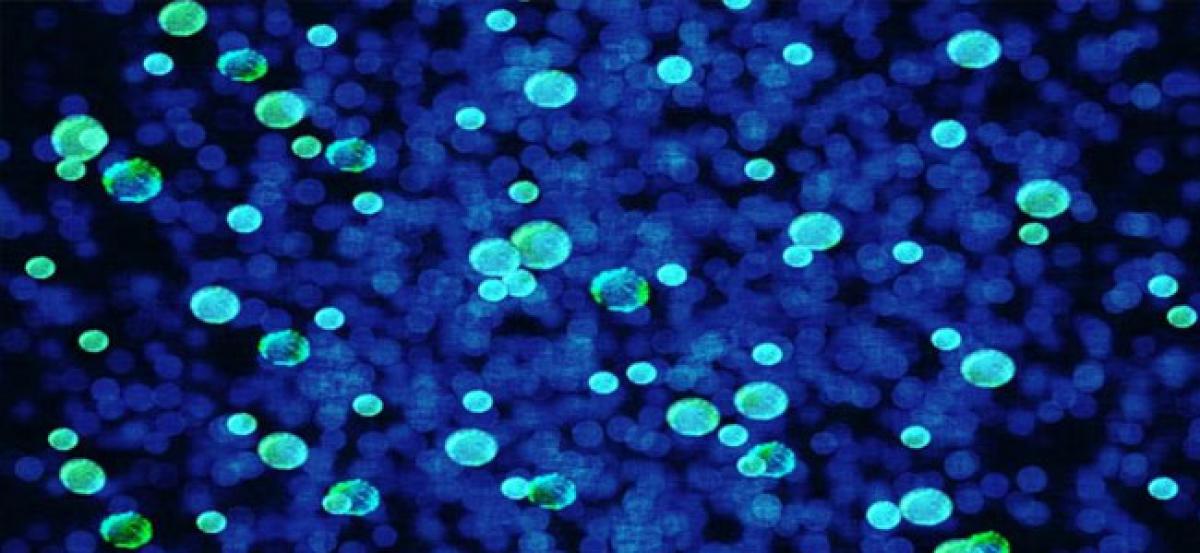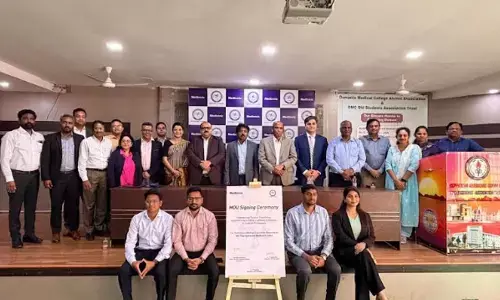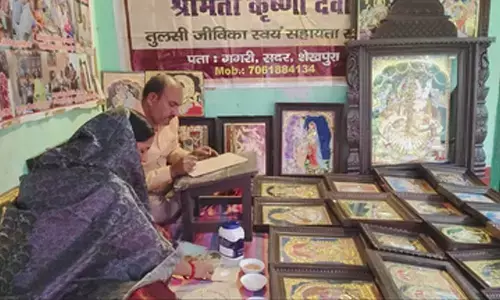Microbes could help predict pace of climate change

A new understanding of the microbes and viruses in the thawing permafrost in Sweden may help scientists better predict the pace of climate change, according to new research
Microbes have significant influence over global warming, primarily through the production of methane.
A new understanding of the microbes and viruses in the thawing permafrost in Sweden may help scientists better predict the pace of climate change, according to new research.
Microbes have significant influence over global warming, primarily through the production of - or consumption of - methane, and new details about these microscopic beings' genetics is now available, thanks to the three studies co-led by researchers at The Ohio State University in the US.
"Because of global climate change, huge amounts of permafrost are rapidly warming. To microbes, they are like freezers full of juicy chicken dinners that are thawing out," said Virginia Rich, an assistant professor at Ohio State. "In many cases, microbes take advantage of this situation to chew up what's in the permafrost and breathe out methane. That methane really packs an environmental wallop, with 33 times the climate warming power of carbon dioxide," said Rich, author of the research published in Nature, Nature Microbiology and ISME Journal.
Many of these bacterial "consumers" and the viruses that influence them have been identified for the first time in these studies.
While scientists have a clear understanding of the dangers of thawing permafrost for releasing methane, they have not had a lot of details on the ins and outs of these microbial communities and their contribution to the process. "The problem is, we don't know all the microbes involved and how they will respond to climate change as the conditions get warmer and wetter, and to do a better job at predicting what will happen in the coming decades we need more information about the key players," Rich said.
Matt Sullivan, a professor at Ohio State, said the research is also important because it contributes a great deal to the general understanding of what is happening in soil. "While we've learned a lot about ocean viruses in recent decades, we know next to nothing about soil viruses," he said. "This work's viruses are so novel that they have doubled the total known viruses in the world," said Sullivan.
The study was conducted in the portion of Sweden in the Arctic circle, one of the best places in the world to study thawing permafrost because of the rapid changes happening there and because of long-standing and well-documented scientific work in the area, Rich said.
In these studies, they recovered more than 1,500 microbial genomes in the soil, which was 100 times what was available previously for these habitats. They also found more than 1,900 new viral populations, where none had been previously identified. A genome is the complete set of genes present in an organism.
The researchers were able to link more than a third of the viruses to the microbes they impact. "Now, we have a roadmap from these genomes to be able to understand the roles they play in these communities," Sullivan said.
By looking at the genomes of the microbes, the team was able to figure out what capabilities they have. "It's like now we have not only their fingerprints but also their resumes, to know both who they are and what they are capable of. The next step is figuring out more of what they are actually actively doing out in the field," Rich said.

















